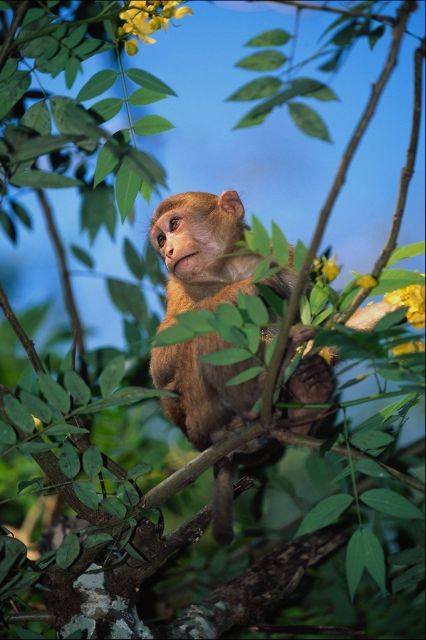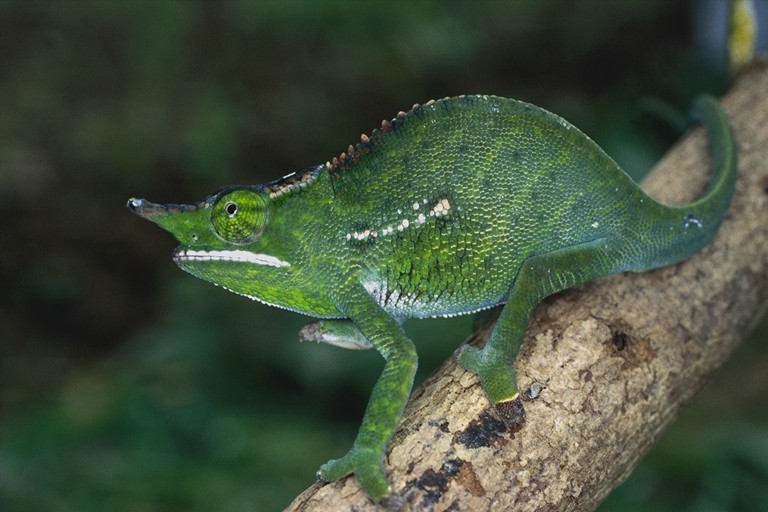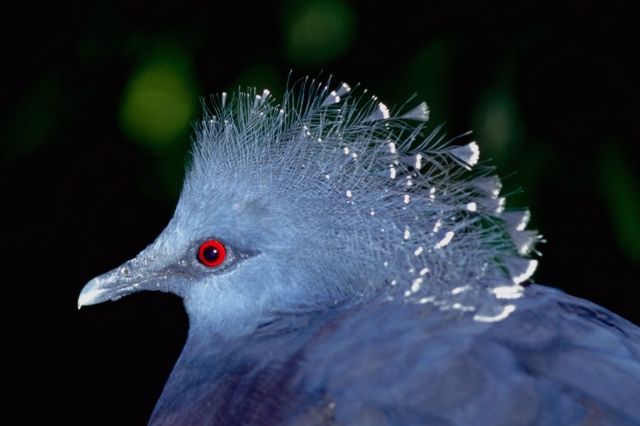 Rainforests are the world’s oldest ecosystems. Biodiversity – the mélange of species living in a given area or ecosystem, is a by-word of the rainforest. They cover 2% of our Earth and 6-7% of the landmass, yet are home to around 2/3 of the known species on Earth. Many modern medicines and cures for deadly diseases such as malaria come from rainforest plants, or are based on them. In the future, AIDS and cancer treatments will most likely come from the rainforest – research on several plants is proving to be a help in the treatments we already have. In addition to housing an unimaginable number of species of plants and animals, indigenous people rely on the rainforest for their daily lives. They build their homes from it, make their medicines from it, get their food from it, and it provides a source of income. Not only does it effect their daily lives, but ours as well. The rainforest is a huge part of the carbon cycle. It gives off oxygen, but that doesn’t really effect our atmosphere – that oxygen is used up in the decomposition that happens on the forest floor. The forest does, however, take in a huge amount of carbon dioxide. It also stores carbon, which is released when the forests are destroyed. This puts literally tons of carbon dioxide into our atmosphere. Carbon dioxide is a greenhouse gas. It traps heat inside the blanket of our atmosphere and contributes largely to the greenhouse effect – global warming. Global warming currently raises global temperatures and in the future could cause widespread climate change such as drought, desertification, the melting of the polar ice caps, flooding, etc.
Rainforests are the world’s oldest ecosystems. Biodiversity – the mélange of species living in a given area or ecosystem, is a by-word of the rainforest. They cover 2% of our Earth and 6-7% of the landmass, yet are home to around 2/3 of the known species on Earth. Many modern medicines and cures for deadly diseases such as malaria come from rainforest plants, or are based on them. In the future, AIDS and cancer treatments will most likely come from the rainforest – research on several plants is proving to be a help in the treatments we already have. In addition to housing an unimaginable number of species of plants and animals, indigenous people rely on the rainforest for their daily lives. They build their homes from it, make their medicines from it, get their food from it, and it provides a source of income. Not only does it effect their daily lives, but ours as well. The rainforest is a huge part of the carbon cycle. It gives off oxygen, but that doesn’t really effect our atmosphere – that oxygen is used up in the decomposition that happens on the forest floor. The forest does, however, take in a huge amount of carbon dioxide. It also stores carbon, which is released when the forests are destroyed. This puts literally tons of carbon dioxide into our atmosphere. Carbon dioxide is a greenhouse gas. It traps heat inside the blanket of our atmosphere and contributes largely to the greenhouse effect – global warming. Global warming currently raises global temperatures and in the future could cause widespread climate change such as drought, desertification, the melting of the polar ice caps, flooding, etc.
 The rainforest covers 7% of the land on Earth, mostly in southeast Asia, South and Central America, and Africa. It is home to 2/3 of the world’s species. Of these species, scientists estimate 137 become extinct each day, due in large part to avoidable human activity. In many parts of the world, over 1% of the remaining rainforest is destroyed annually. Deforestation contributes 23--30% of the carbon dioxide put into our atmosphere each year. Each year worldwide we lose 2.4 acres/second; about two football fields’ worth of rainforest. 214,000 acres, an area larger than NYC, are destroyed each day. We wipe out 78,000,000 acres annually, which is bigger than the entire country of Poland.
The rainforest covers 7% of the land on Earth, mostly in southeast Asia, South and Central America, and Africa. It is home to 2/3 of the world’s species. Of these species, scientists estimate 137 become extinct each day, due in large part to avoidable human activity. In many parts of the world, over 1% of the remaining rainforest is destroyed annually. Deforestation contributes 23--30% of the carbon dioxide put into our atmosphere each year. Each year worldwide we lose 2.4 acres/second; about two football fields’ worth of rainforest. 214,000 acres, an area larger than NYC, are destroyed each day. We wipe out 78,000,000 acres annually, which is bigger than the entire country of Poland.
 There are a number of reasons for deforestation – that is, cutting down, burning, or otherwise destroying the rainforest. "Some countries have encouraged their citizens to go out into the rain forests and clear the land for family farms.....New industries, brought in to provide jobs for the people, can also contribute to deforestation. For example, wood is used in mining and brick making. Smelting iron requires charcoal, which is made from wood." In Brazil clearing the forest translated to a tax deduction for decades. Many countries such as Brazil, developing countries, have huge national debt, which they pay off with resources form the rainforest, hardwood, and cattle, for which they clear the forest to raise. Acres of trees are removed to make room for farmland, but the soil is nutrient poor and quickly washes away without the vegetation to keep it in place. If these countries practiced agroforestry (planting crops inside the forest) they wouldn’t need to cut it down. They don’t really even need to do that though, as harvesting restrained amounts of natural resources such as latex or fruits would bring in a large revenue. As it is, deforestation is taking its toll.
There are a number of reasons for deforestation – that is, cutting down, burning, or otherwise destroying the rainforest. "Some countries have encouraged their citizens to go out into the rain forests and clear the land for family farms.....New industries, brought in to provide jobs for the people, can also contribute to deforestation. For example, wood is used in mining and brick making. Smelting iron requires charcoal, which is made from wood." In Brazil clearing the forest translated to a tax deduction for decades. Many countries such as Brazil, developing countries, have huge national debt, which they pay off with resources form the rainforest, hardwood, and cattle, for which they clear the forest to raise. Acres of trees are removed to make room for farmland, but the soil is nutrient poor and quickly washes away without the vegetation to keep it in place. If these countries practiced agroforestry (planting crops inside the forest) they wouldn’t need to cut it down. They don’t really even need to do that though, as harvesting restrained amounts of natural resources such as latex or fruits would bring in a large revenue. As it is, deforestation is taking its toll.
 Rainforest deforestation must be stopped, or in the very least slowed. To aid this process, you can write to your government, state or national. You can take a stand by boycotting rainforest-made products, and you can raise money to save a portion of the forest. Probably the most important and easiest way to protect our rainforests though, is to educate others about rainforest deforestation. For more information and ideas, check out these sites:
Rainforest deforestation must be stopped, or in the very least slowed. To aid this process, you can write to your government, state or national. You can take a stand by boycotting rainforest-made products, and you can raise money to save a portion of the forest. Probably the most important and easiest way to protect our rainforests though, is to educate others about rainforest deforestation. For more information and ideas, check out these sites:
Rainforest Action Network
Rainforest Report Card
NASA Satellite Pictures - Deforestation
CVU Earth/Space Science
Bibliography